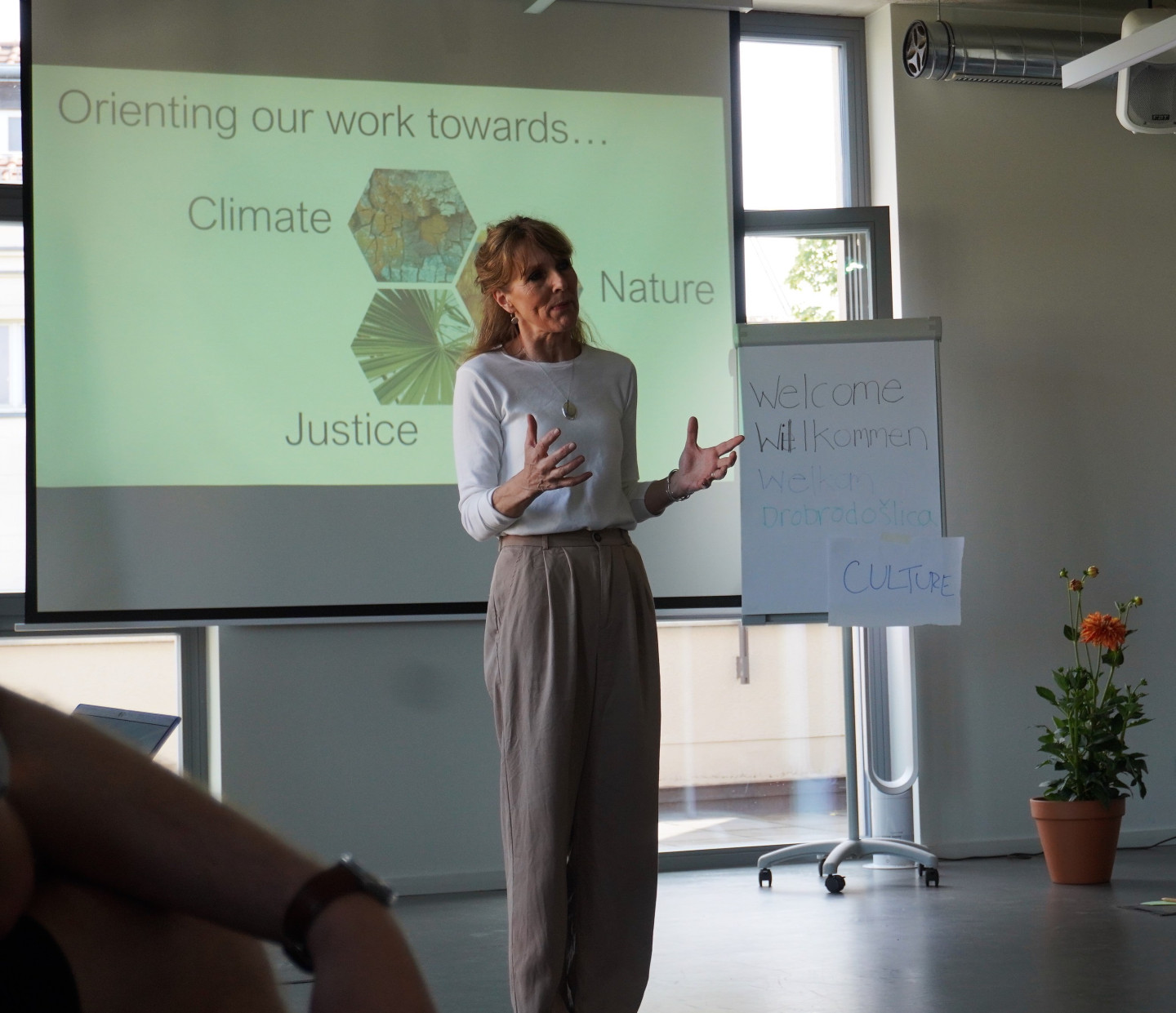
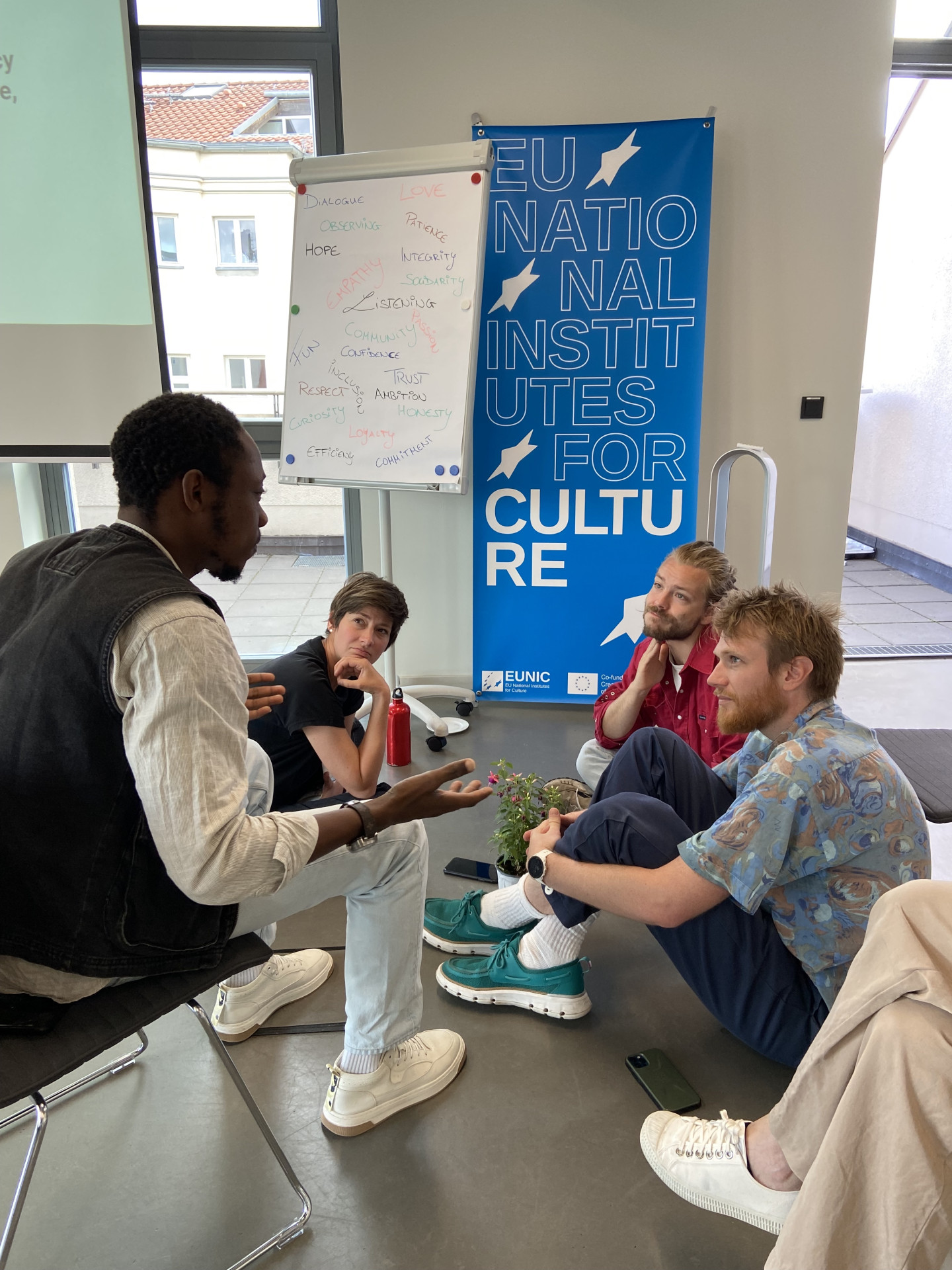
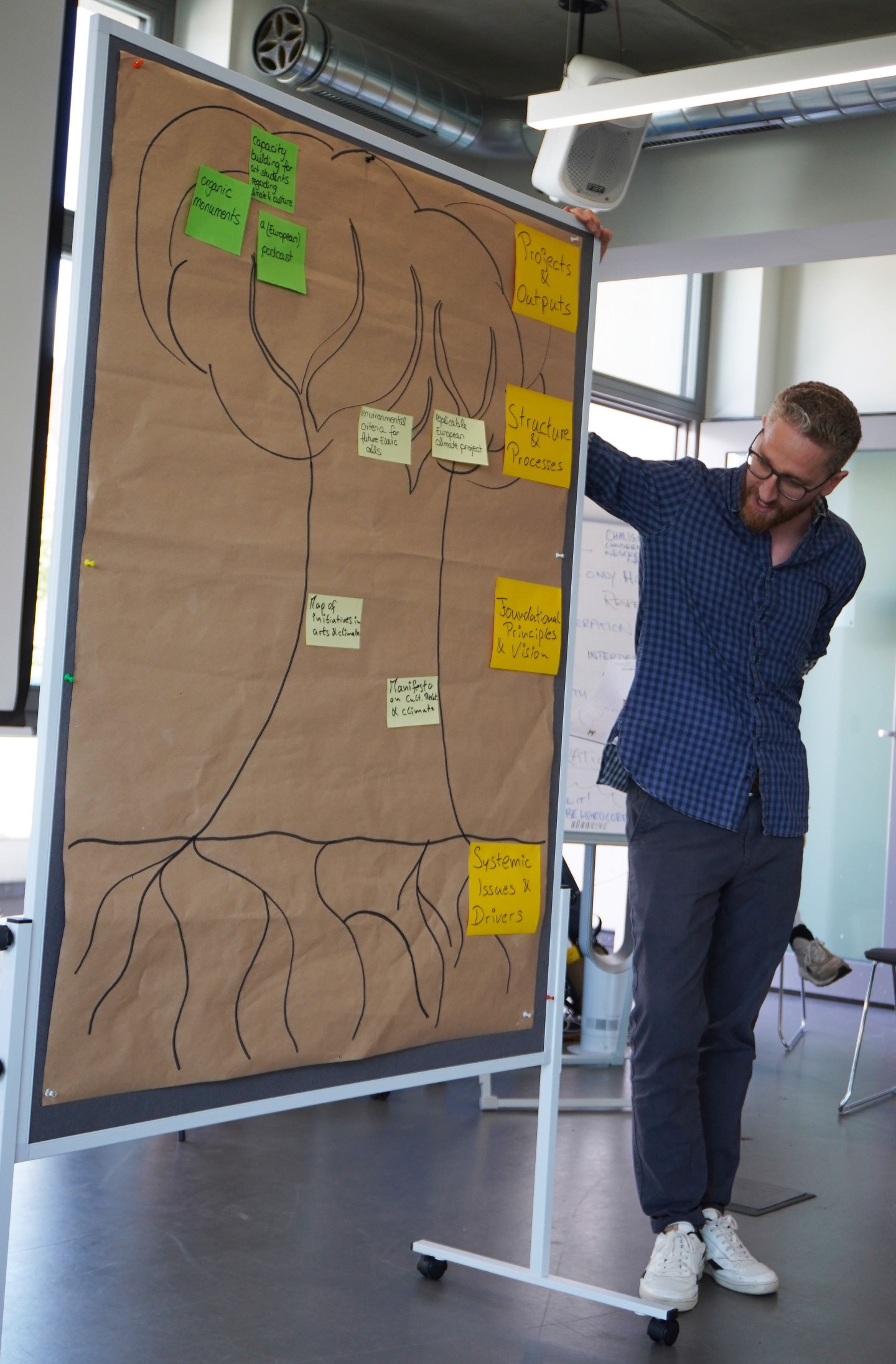
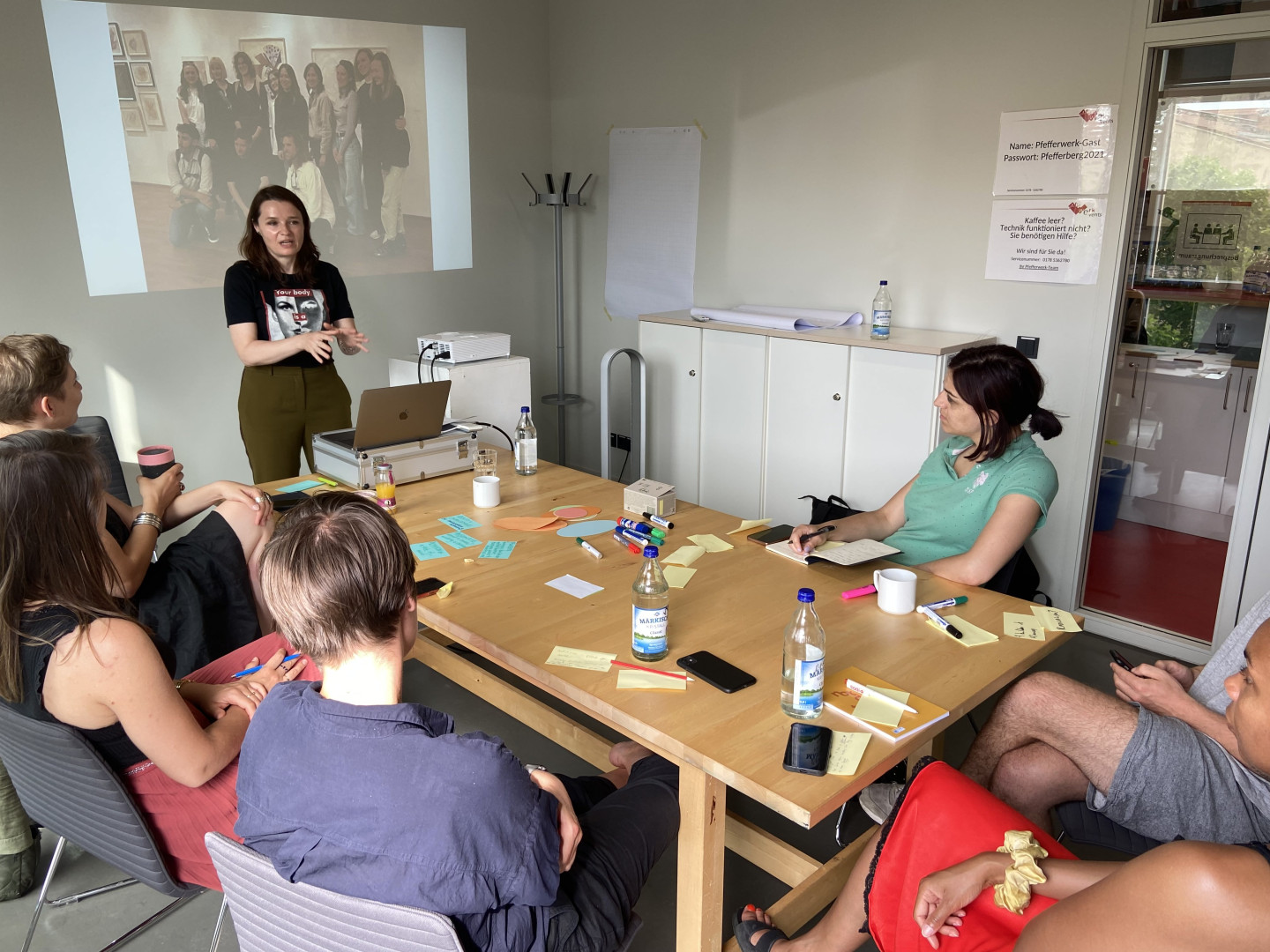
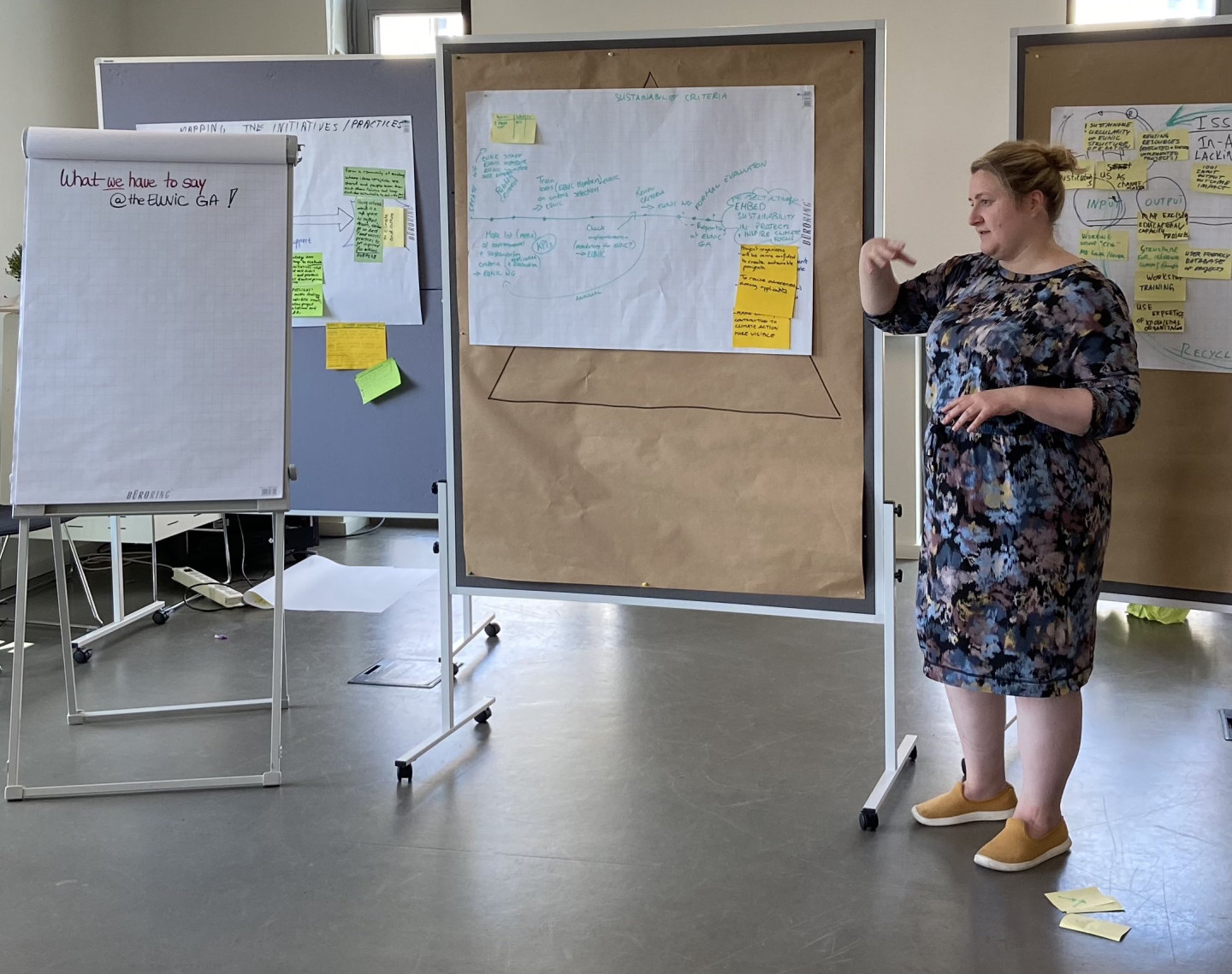
Climate Culture(s) Creative Lab in Berlin
The EUNIC Climate Culture(s) Creative Lab took place in Berlin from 22 to 28 June 2023. As part of the Goethe-Institut’s presidency of EUNIC in 2022-2023, the Lab brought to life new connections and collaboration among EUNIC members on topics of environment, climate, and culture and supported emerging leadership in these areas.





About the Lab
The programme gathered 43 representatives from 19 EUNIC member organizations from both headquarters in Europe and branches around the world. Participants were selected through an open call to all members for their expertise and engagement in culture and/or climate. The programme for the week in Berlin was collaboratively developed with the participants and built on three preparatory online meetings organised from March 2023.
For the Lab, EUNIC and Goethe-Institut partnered up with two expert partners to facilitate the week, namely Julie's Bicycle and Social Impact.
Julie’s Bicycle is a pioneering not-for-profit organisation mobilising the arts and culture to take action on the climate, nature, justice crisis. Based on their Creative Climate Leadership programme, they helped participants within others understand the broader picture of scientific urgency, the existing climate movement, climate justice, and policy opportunities.
Social Impact are experts in start-up consulting. They supported participants to translate the learnings into concrete action ideas within their specific contexts of arts & culture in international relations.
During two different panel discussions on the climate action movement and climate (foreign) policy, participants had the opportunity to discuss creative approaches to the climate movement as well as climate diplomacy and policy with high level experts. As part of the collaborative nature of the Lab, participants led sessions on the work of their own organisations and relevant topics such as AI, sustainable funding and cultural programming, structural inequalities, sustainable filmmaking, heritage, and the environmental impact of the war in Ukraine. The programme also included a variety of visits to local initiatives in Berlin related to climate-friendly resource use, urban gardening, sustainable clubbing, and urban development. In an effort to organise the entire programme itself as sustainable as possible, the organisational team partnered up with vegetarian & local catering, the group moved using public transportation and the closing event took place on a renewable energy fueled boat.
I've met wonderful and intelligent people, which leaves me with a great network of climate champions. The people and the drive to change the world made me feel hopeful.
Anonymous, from participant evaluation
Outcomes
During the Lab, participants discussed several creative projects around culture & climate, and looked at challenges and opportunities to this work at different levels. With the support of Social Impact, they developed some of these ideas further in focused working groups.
A tree was found as useful analogy for the types of initiatives and commitments the participants were developing: Each part of the tree relies on the others, all aspects from systemic issues to concrete projects are deeply connected. Projects are not enough, deep systems change is required. This visual image helped participants to situate and prioritise initial project ideas, allow new ideas to flourish, and for the recommendations to take shape.
The Lab was very inspiring, I loved learning from so many diverse experiences and points of view regarding culture and climate. I'm highly motivated to share with my colleagues the lessons learned and encourage them to engage more with these issues.
Anonymous, from participant evaluation
CCCLab at the EUNIC General Assembly in Copenhagen
Following the week in Berlin, a delegation of six selected participants from Goethe-Institut New Delhi, DutchCulture, the Danish Cultural Institute/Ukrainian-Danish Youth House, Institut français, the Polish Institute in Bucharest and the Finnish Institute in the UK and Ireland, travelled to Copenhagen to present the outcomes of the Lab and recommendations for the network on adopting cultural solutions to the climate crisis. This was also an opportunity for these participants to share their professional and personal experiences of the week, emphasising the crucial role of culture in solutions to the climate crisis and bringing inclusivity, intersectionality, democracy, responsibility, and empathy into the conversation.
This program has greatly expanded my professional horizons and visions. It will undoubtedly have a significant positive impact on our organizations and us as individuals. New ideas were found, new friendships were established, and new plans were mapped out.
Anonymous, from participant evaluation
The full report of the programme can be found here.
Watch the aftermovie here.
